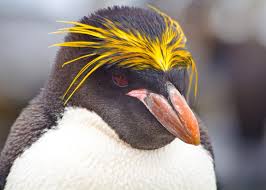Stamp: Emperor Penguin (Aptenodytes forsteri) (Chile 1948)
Emperor Penguin (Aptenodytes forsteri) (Chile 1948)
06 December (Chile ) within release Publication of Natural History of Chile goes into circulation Stamp Emperor Penguin (Aptenodytes forsteri) face value 60 Chilean centavo
| Stamp Emperor Penguin (Aptenodytes forsteri) in catalogues | |
|---|---|
| Stamp Number: | Sn:CL 254h |
Stamp is square format.
Also in the issue Publication of Natural History of Chile:
- Stamp - Southern River Otter (Lutra huidobria) face value 60;
- Stamp - Araucaria Pine face value 60;
- Stamp - Chilean Pigeon (Columba araucana) face value 60;
- Stamp - Striped Skunk (Mephitis chilensis) face value 60;
- Stamp - Evening Primrose face value 60;
- Stamp - Southern Sea Lion (Otaria byronia) face value 60;
- Stamp - Sugar-cane Borer Moth (Castnia eudesmia) face value 60;
- Stamp - Emperor Penguin (Aptenodytes forsteri) face value 60;
- Stamp - Red Fruit Bat (Stenoderma chilensis) face value 60;
- Stamp - Lesser Chinchilla (Chinchilla laniger) face value 60;
- Stamp - Grant's Stag Beetle (Chiasognathus grantil) face value 60;
- Stamp - Pacific Bonito (Pelamys chilensis) face value 60;
- Stamp - Chilean Tree Iguana (Liolaemus chilensis) face value 60;
- Stamp - Copihue / Chilean Red Bell Flower face value 60;
- Stamp - Southern Crested Caracara (Polyborus plancus) face value 60;
- Stamp - Loxodon flower face value 60;
- Stamp - Giant Coot (Fulica gigantea) face value 60;
- Stamp - South Andean Deer (Hippocamelus bisulcus) face value 60;
- Stamp - Juan Fernandez Rock Lobster (Jasus frontalis) face value 60;
- Stamp - Boldo Tree face value 60;
- Stamp - Chilean Sandperch (Pinguipes chilensis) face value 60;
- Stamp - Mantis (Mantis gayi) face value 60;
- Stamp - Coquito Palm Trees face value 60;
- Stamp - Torrent Duck (Merganetta armata) face value 60;
- Stamp - Red Cusk-eel (Genipterus chilensis) face value 60;
Stamp Emperor Penguin (Aptenodytes forsteri) it reflects the thematic directions:
Birds (Aves), a subgroup of Reptiles, are the last living examples of Dinosaurs. They are a group of endothermic vertebrates, characterised by feathers, toothless beaked jaws, the laying of hard-shelled eggs, a high metabolic rate, a four-chambered heart, and a strong yet lightweight skeleton. Birds live worldwide and range in size from the 5 cm (2 in) bee hummingbird to the 2.75 m (9 ft) ostrich. They rank as the class of tetrapods with the most living species, at approximately ten thousand, with more than half of these being passerines, sometimes known as perching birds. Birds are the closest living relatives of crocodilians.
Penguins are a group of aquatic flightless birds from the family Spheniscidae (/sfɪˈnɪsɪdiː, -daɪ/) of the order Sphenisciformes (/sfɪˈnɪsəfɔːrmiːz/). They live almost exclusively in the Southern Hemisphere: only one species, the Galápagos penguin, is found north of the Equator. Highly adapted for life in the ocean water, penguins have countershaded dark and white plumage and flippers for swimming. Most penguins feed on krill, fish, squid and other forms of sea life which they catch with their bills and swallow whole while swimming. A penguin has a spiny tongue and powerful jaws to grip slippery prey
Animals are multicellular, eukaryotic organisms of the kingdom Animalia (also called Metazoa). All animals are motile, meaning they can move spontaneously and independently, at some point in their lives. Their body plan eventually becomes fixed as they develop, although some undergo a process of metamorphosis later on in their lives. All animals are heterotrophs: they must ingest other organisms or their products for sustenance.



